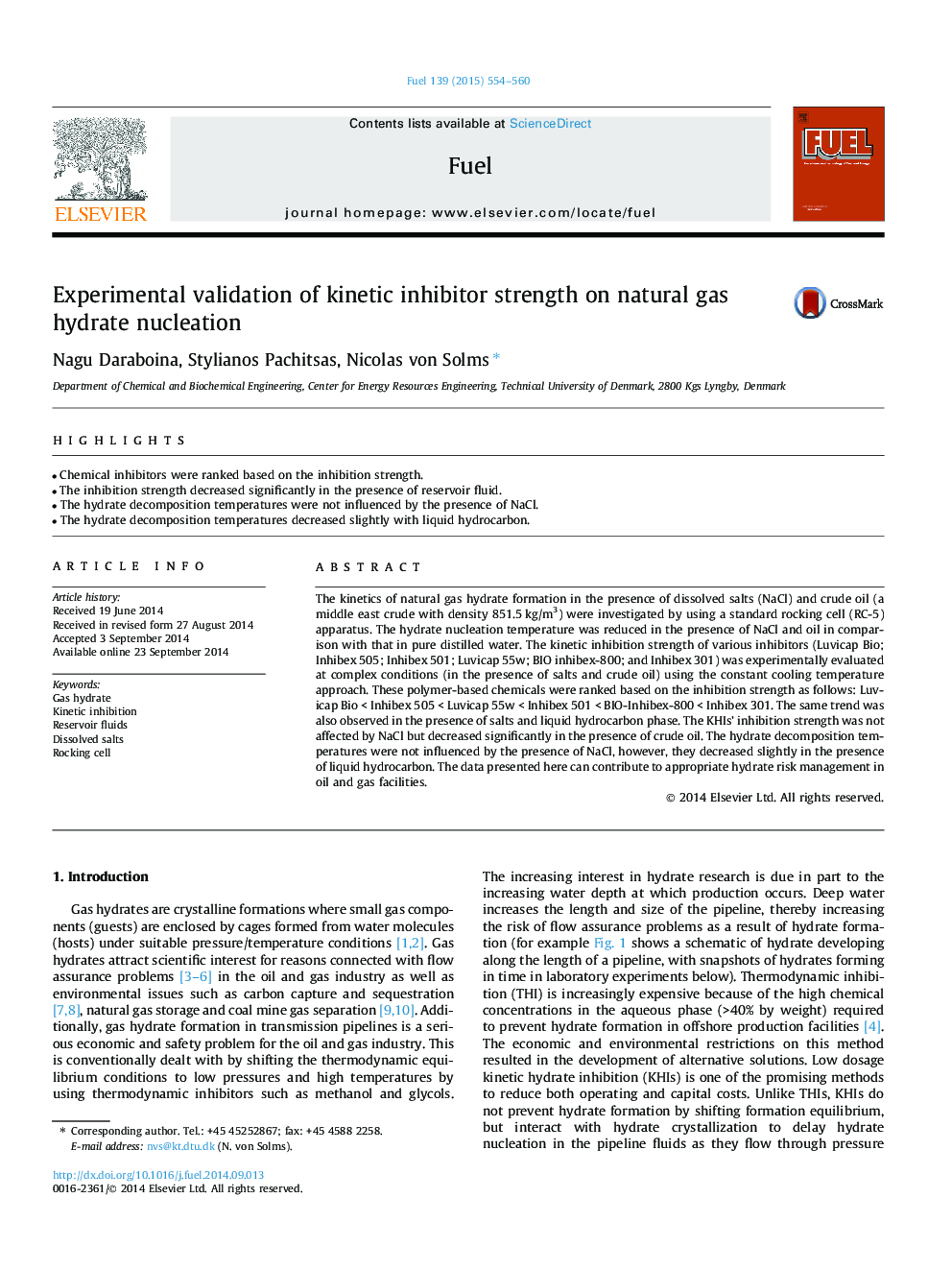| Article ID | Journal | Published Year | Pages | File Type |
|---|---|---|---|---|
| 6636561 | Fuel | 2015 | 7 Pages |
Abstract
The kinetics of natural gas hydrate formation in the presence of dissolved salts (NaCl) and crude oil (a middle east crude with density 851.5 kg/m3) were investigated by using a standard rocking cell (RC-5) apparatus. The hydrate nucleation temperature was reduced in the presence of NaCl and oil in comparison with that in pure distilled water. The kinetic inhibition strength of various inhibitors (Luvicap Bio; Inhibex 505; Inhibex 501; Luvicap 55w; BIO inhibex-800; and Inhibex 301) was experimentally evaluated at complex conditions (in the presence of salts and crude oil) using the constant cooling temperature approach. These polymer-based chemicals were ranked based on the inhibition strength as follows: Luvicap Bio < Inhibex 505 < Luvicap 55w < Inhibex 501 < BIO-Inhibex-800 < Inhibex 301. The same trend was also observed in the presence of salts and liquid hydrocarbon phase. The KHIs' inhibition strength was not affected by NaCl but decreased significantly in the presence of crude oil. The hydrate decomposition temperatures were not influenced by the presence of NaCl, however, they decreased slightly in the presence of liquid hydrocarbon. The data presented here can contribute to appropriate hydrate risk management in oil and gas facilities.
Related Topics
Physical Sciences and Engineering
Chemical Engineering
Chemical Engineering (General)
Authors
Nagu Daraboina, Stylianos Pachitsas, Nicolas von Solms,
